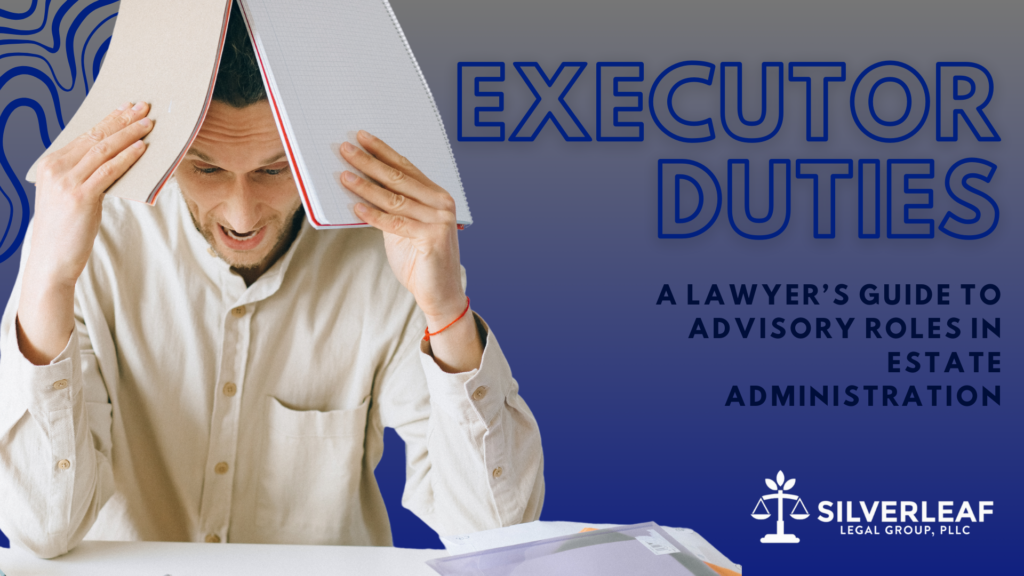Estate planning is not just about drafting wills and creating trusts; it’s about ensuring that your wishes are carried out smoothly when the time comes. As an estate attorney with nearly two decades of experience, I’ve witnessed the critical role that executors play in the estate administration process. In this comprehensive guide, we will delve into the crucial duties of an executor and how attorneys can provide valuable advisory support throughout the process.
Understanding the Executor’s Role:
The executor of an estate is tasked with managing and distributing the assets according to the deceased person’s wishes, as outlined in their will. This role carries significant responsibilities, including:
- Probate Process: The executor initiates the probate process, which involves authenticating the will and obtaining the legal authority to administer the estate.
- Asset Management: They must identify, safeguard, and manage the deceased’s assets during the administration process.
- Debts and Expenses: Executors are responsible for paying outstanding debts, taxes, and administrative expenses from the estate’s assets.
- Asset Distribution: Following the deceased’s wishes, the executor distributes the remaining assets to the designated beneficiaries.
- Legal Compliance: Executors must ensure that all actions taken comply with state laws and regulations.
Advisory Role of the Estate Attorney:
As an estate attorney, my role extends beyond drafting legal documents. I serve as a trusted advisor to the executor, providing valuable guidance and expertise. Here’s how estate attorneys can support executors:
- Interpretation of the Will: Executors may need assistance in understanding the legal language and provisions of the will. Attorneys can interpret these documents and ensure that the executor follows the decedent’s intentions.
- Legal Compliance: Estate attorneys keep executors informed about the legal requirements and deadlines involved in the administration process, helping them avoid potential pitfalls.
- Asset Valuation: Determining the value of various assets can be complex. Attorneys can help executors assess the worth of assets accurately, ensuring proper distribution.
- Tax Planning: Executors often need guidance on estate tax laws. Estate attorneys can help plan for tax obligations and explore strategies to minimize the tax burden.
- Dispute Resolution: In cases where disputes arise among beneficiaries, attorneys can step in to mediate and resolve conflicts, protecting the executor from personal liability.
Being an executor is a substantial responsibility, and the guidance of an experienced estate attorney can be invaluable. Executors play a pivotal role in ensuring the deceased’s wishes are honored, and attorneys provide the expertise needed to navigate the complexities of estate administration.
As an estate attorney, I understand the intricate details of the executor’s duties and the challenges they may face. My mission is to support and advise executors every step of the way, ensuring a seamless and lawful estate administration process.
If you are an executor or considering taking on this role, don’t hesitate to reach out for professional guidance. Together, we can honor the wishes of your loved one and navigate the intricate world of estate administration with confidence.

